At the forefront of patient care, research and education on the world’s deadliest diseases.
The Johns Hopkins Special Pathogens Center is dedicated to preparing for, monitoring and treating highly lethal infections and diseases of unknown origin. Our center brings together the expertise of three distinct areas at Johns Hopkins Medicine — clinical care, research and education — to respond to special pathogens.
Areas of Expertise
Clinical Care
The Johns Hopkins Biocontainment Unit (BCU) is one of 13 federally funded Regional Emerging Special Pathogen Treatment Centers. It is one of the premier high-level isolation units in the world, maintaining constant readiness to care for patients infected with special pathogens. The BCU has cared for persons under investigation for viral hemorrhagic fevers such as Ebola and Marburg, and it played a critical role in the local, regional and national response to COVID-19.
Research Spotlight: The role of dedicated biocontainment patient care units in preparing for COVID-19 and other infectious disease outbreaks
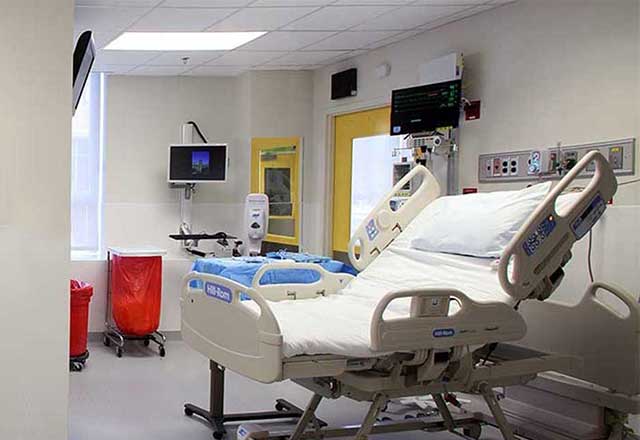
Research
The Special Pathogens Center conducts research to advance the science of biocontainment care including work on the built environment, personal protective equipment (PPE), clinical protocols, staff safety, waste management and clinical countermeasures. The center is also the home of the Johns Hopkins Precision Medicine Center of Excellence for COVID-19. The COVID-19 PMCOE is dedicated to understanding the pathobiology, clinical manifestations and treatment of COVID-19. The center demonstrated the real-world benefits of COVID treatments, developed real-time prediction models used by clinicians around the world, and showed that pulse oximetry underestimates hypoxemia in underrepresented minorities. The center continues to conduct cutting-edge research on COVID-19, and will apply lessons learned to other infectious disease threats.
Research Spotlight: Racial and Ethnic Discrepancy in Pulse Oximetry and Delayed Identification of Treatment Eligibility Among Patients With COVID-19
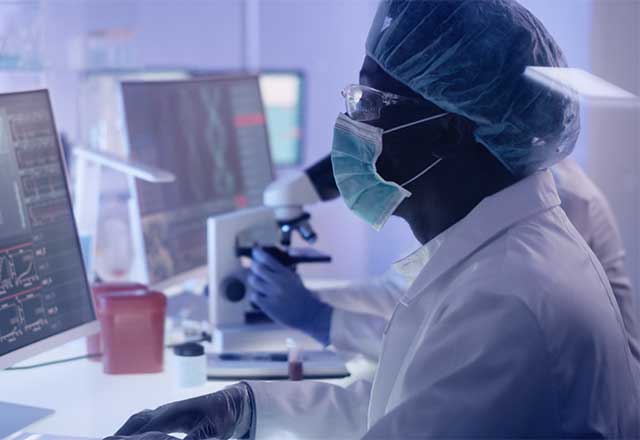
Education
The center is dedicated to educating healthcare providers, health systems and communities on how to safely and effectively respond to special pathogens events. One of the highlights of the center’s education work is the Special Pathogens Training and Education Program (STEP). STEP is one of the largest and most successful special pathogen training programs in the world. Established in 2018 to help front-line hospitals prepare for viral hemorrhagic fever patient encounters, STEP has conducted over 30 on-site training sessions with 500 front-line health care workers and leaders in the U.S. Department of Health and Human Services (HHS) Region 3. STEP was instrumental in helping Region 3 hospitals respond to COVID-19, and it continues to be a vital resource for regional infectious disease education and preparedness.
For more information on STEP, contact Chris Sulmonte, administrative director, at [email protected].
Research Spotlight: Creating a Safety Officer Program to Enhance Staff Safety During the Care of COVID-19 Patients
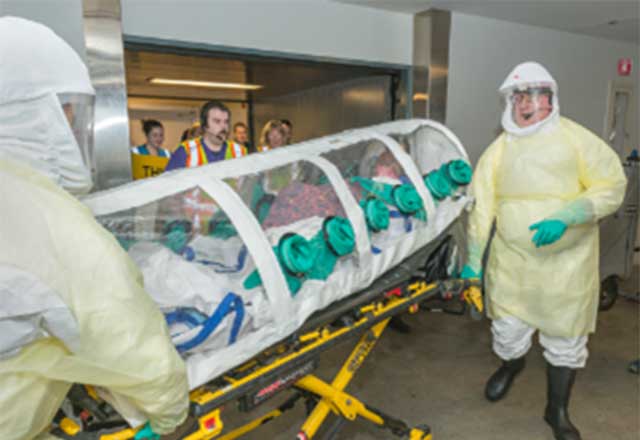
How a Biocontainment Unit Helped Lead the Response to COVID-19
Watch an interview with Brian Garibaldi, M.D., director of the Special Pathogens Center. As part of a video series about Johns Hopkins Medicine’s response to the COVID-19 pandemic, Garibaldi describes how the Johns Hopkins Biocontainment Unit played an important role in the health system’s multidisciplinary planning and response.
Select Peer-Reviewed Publications
The role of dedicated biocontainment patient care units in preparing for COVID-19 and other infectious disease outbreaks
This article describes how the foundation of special pathogen readiness was leveraged to strengthen the national health care system’s response to the COVID-19 pandemic.
Racial and Ethnic Discrepancy in Pulse Oximetry and Delayed Identification of Treatment Eligibility Among Patients With COVID-19
This article describes how pulse oximeters underestimate hypoxemia more frequently in underrepresented minorities, which can lead to delays in recognizing individuals who are eligible for COVID-19-specific treatments.
Development of Severe COVID-19 Adaptive Risk Predictor (SCARP), a Calculator to Predict Severe Disease or Death in Hospitalized Patients With COVID-19
This article describes the creation of a clinical prediction model that accurately identifies hospitalized patients with COVID-19 who are at risk of progression to severe disease or death.
Creating a Safety Officer Program to Enhance Staff Safety During the Care of COVID-19 Patients
This article describes the development of a safety and transport safety officer program aimed to maintain health care worker safety by bolstering PPE trainers during the COVID-19 pandemic response.
The Use of Temperature and Pressure Data Loggers to Validate the Steam Sterilization of Category A Clinical Waste
This article describes the methods used by the Johns Hopkins BCU to verify autoclave settings to inactivate clinical care waste.
The Risk of Not Being Ready: a Novel Approach to Managing Constant Readiness of a High-Level Isolation Unit During Times of Inactivity
This article describes the development of the Johns Hopkins BCU’s readiness evaluation tool, which is focused on critical infrastructure, staffing and supply elements required for rapid unit activation.
Additional Resources
-
Johns Hopkins Medicine Division of Infectious Diseases
The Division of Infectious Diseases at Johns Hopkins is nationally and internationally known for its excellence in the study and treatment of infections. With over 400 people in the division, its primary goal is to combat infectious diseases worldwide.
-
Johns Hopkins Pulmonary and Critical Care Medicine
The Division of Pulmonary and Critical Care Medicine strives to improve the health of our own patients and those we may never meet, by teaching and advancing the state of medical knowledge. The division has over 70 full-time faculty and part-time clinical faculty with expertise in diseases including asthma, COPD, critical care, cystic fibrosis, interstitial lung disease, lung cancer, lung transplantation, neuromuscular disease, pulmonary hypertension, sarcoidosis and sleep medicine.
Team
Brian T. Garibaldi, M.D., M.E.H.P.
Center Director
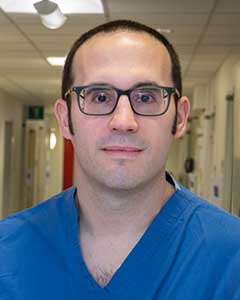
Christopher Sulmonte, M.H.A.
Administrative Director

Jade Flinn, M.S.N., R.N.
Director of Operations

Carrie Billman, R.N., C.I.C.
Director of Education and Infection Prevention

Noreen Hynes, M.D., M.P.H., D.T.M.&H.
Director of Research
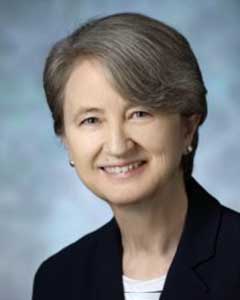
Mark Romig, M.D.
Director of Critical Care
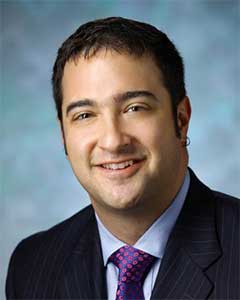
Chad Bowman, M.S.N., R.N., C.F.R.N., N.R.P.
Director of Transport Operations
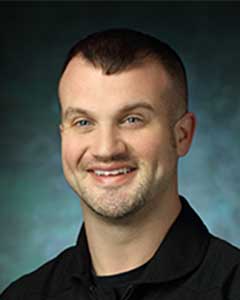
Dorinda Thomas
Administrative Coordinator
